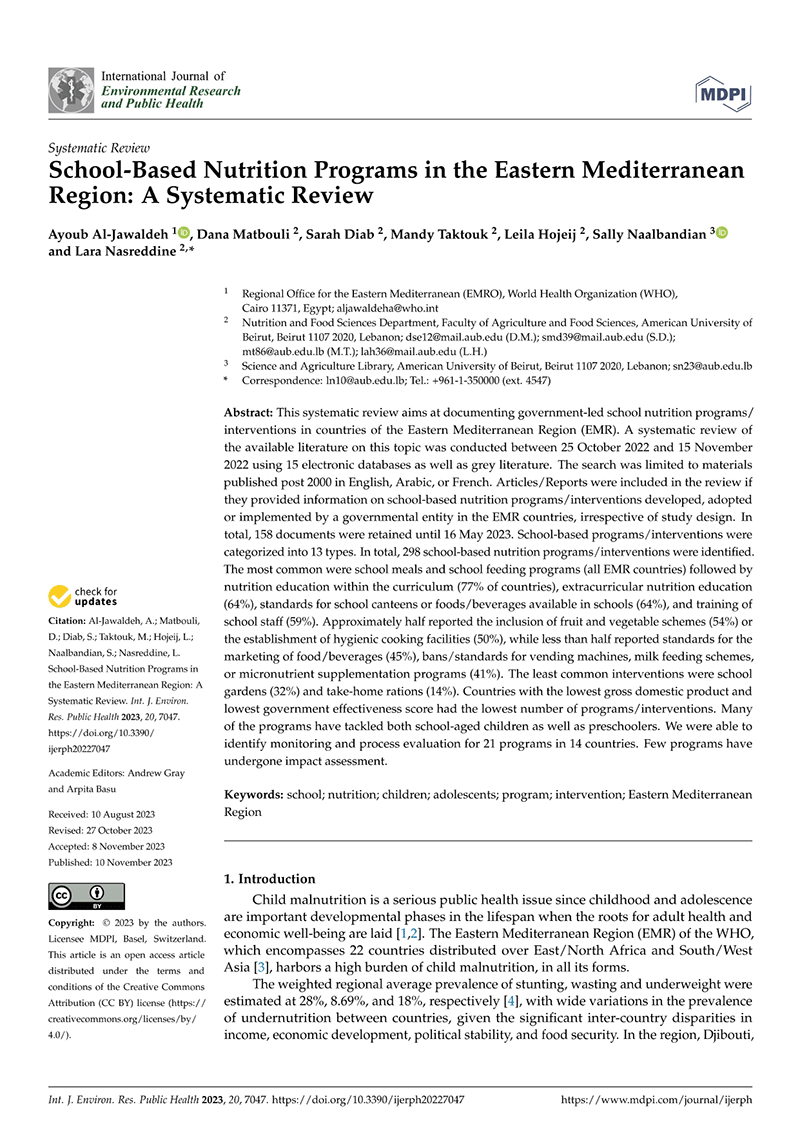
School-Based Nutrition Programs in the Eastern Mediterranean Region: A Systematic Review
Publication date: 2023
This systematic review aims at documenting government-led school nutrition programs/interventions in countries of the EMR. Countries with the lowest gross domestic product and lowest government effectiveness score had the lowest number of programs/interventions. Many of the programs have tackled both school-aged children as well as preschoolers. We were able to identify monitoring and process evaluation for 21 programs in 14 countries. Few programs have undergone impact assessment.

Marketing of food and beverages to children in the Eastern Mediterranean Region: A situational analysis of the regulatory framework
Publication date: 2022
Marketing of food items high in added saturated and/or trans-fat, sugar, or sodium (HFSS) negatively affect consumption patterns of young children. The World Health Organization advised countries to regulate the marketing of foods and non-alcoholic beverages to young populations. The aim of this manuscript is to provide a situational analysis of the regulatory framework of food marketing policies targeting children in the Eastern Mediterranean Region (EMR). This review identifies the need to intensify the efforts to legislate comprehensive food marketing policies within and across EMR countries.
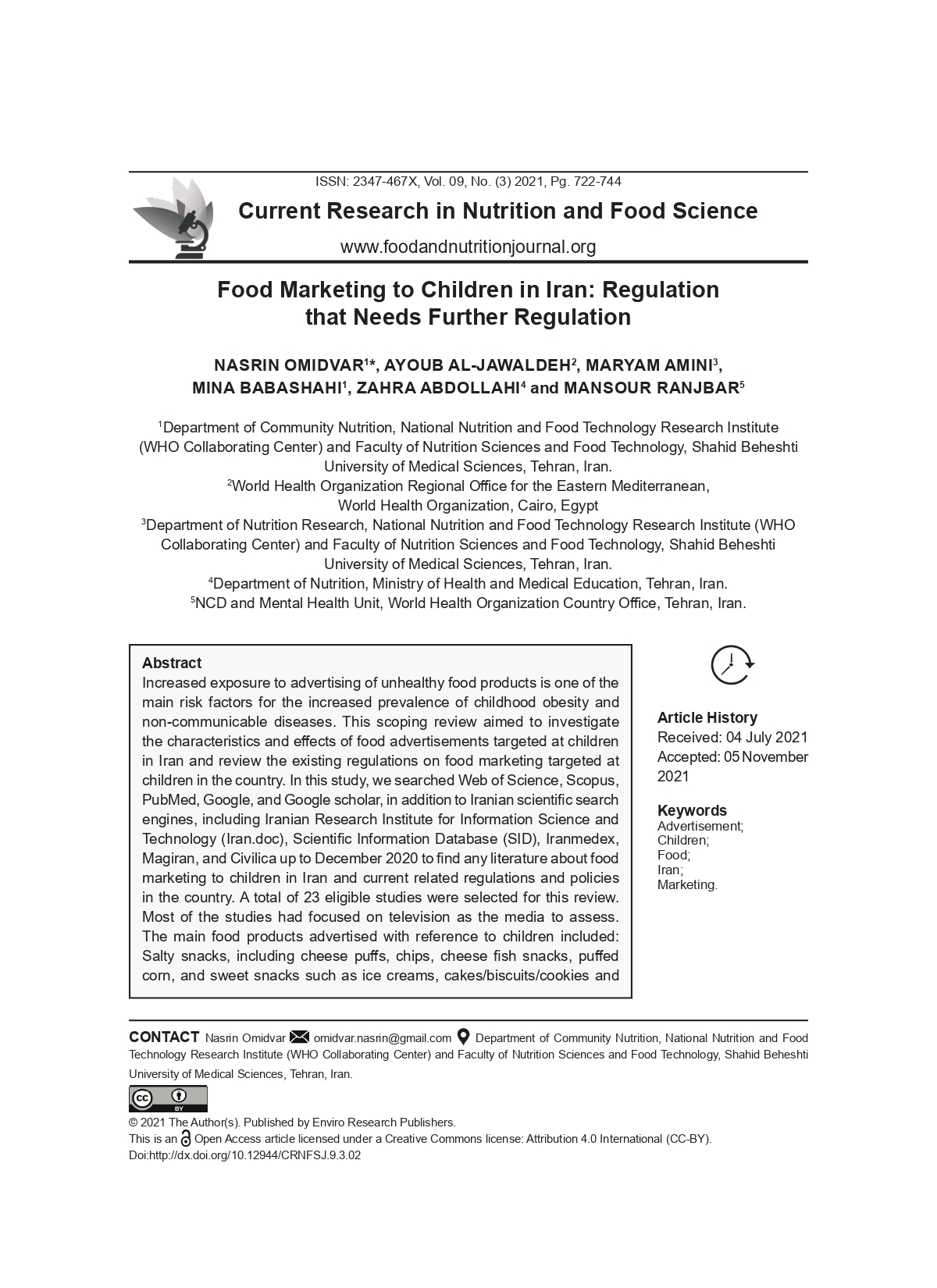
Food marketing to children in Iran: Regulation that needs further regulation
Publication date: 2021
Increased exposure to advertising unhealthy food products is one of the main risk factors for the increased prevalence of childhood obesity and noncommunicable diseases. This scoping review provided evidence and recommendations to the policy-makers and practitioners about controlling children’s exposure to unhealthy food advertisements. This review presented and discussed the current status of food marketing in Iran and the shortcomings of existing regulations. The study concluded that the policies and regulations in food marketing need to address children as an important audience. It is suggested future policies focused on children cover all forms of food marketing and consider all types of persuasive food marketing strategies targeted at children.
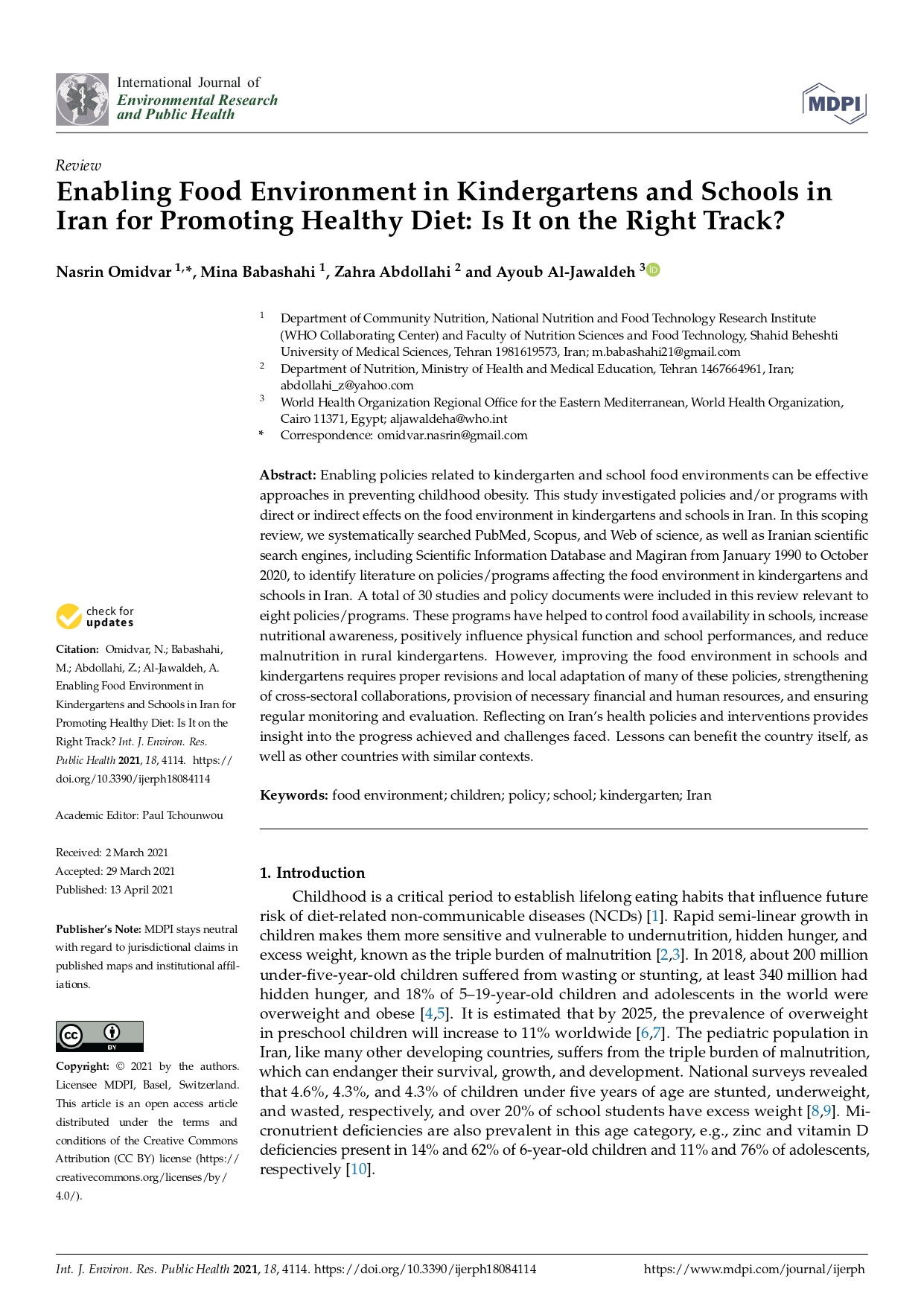
Enabling food environment in kindergartens and schools in Iran for promoting healthy diet: is it on the right track?
Publication date: 2021
Enabling policies related to kindergarten and school food environments can be effective approaches in preventing childhood obesity. This study investigated policies and/or programmes with direct or indirect effects on the food environment in kindergartens and schools in Iran. These programmes have helped to control food availability in schools, increase nutritional awareness, positively influence physical function and school performances, and reduce malnutrition in rural kindergartens. However, improving the food environment in schools and kindergartens requires proper revisions and local adaptation of many of these policies, strengthening of cross-sectoral collaborations, provision of necessary financial and human resources, and ensuring regular monitoring and evaluation.

Impact of sin taxes on consumption volumes of sweetened beverages and soft drinks in Saudi Arabia
Publication date: 2021
The consumption of sweetened drinks plays a major role in increasing the burden of diseases such as obesity and cardiovascular diseases. The prevalence rate of obesity and overweight individuals in Saudi Arabia has increased alarmingly among children over the past decade, revealing a crucial need to initiate and monitor effective prevention measures of obesity. This paper aims to measure the impact of sin taxes of sugar-sweetened beverages on the consumption level of such beverages in Saudi Arabia.
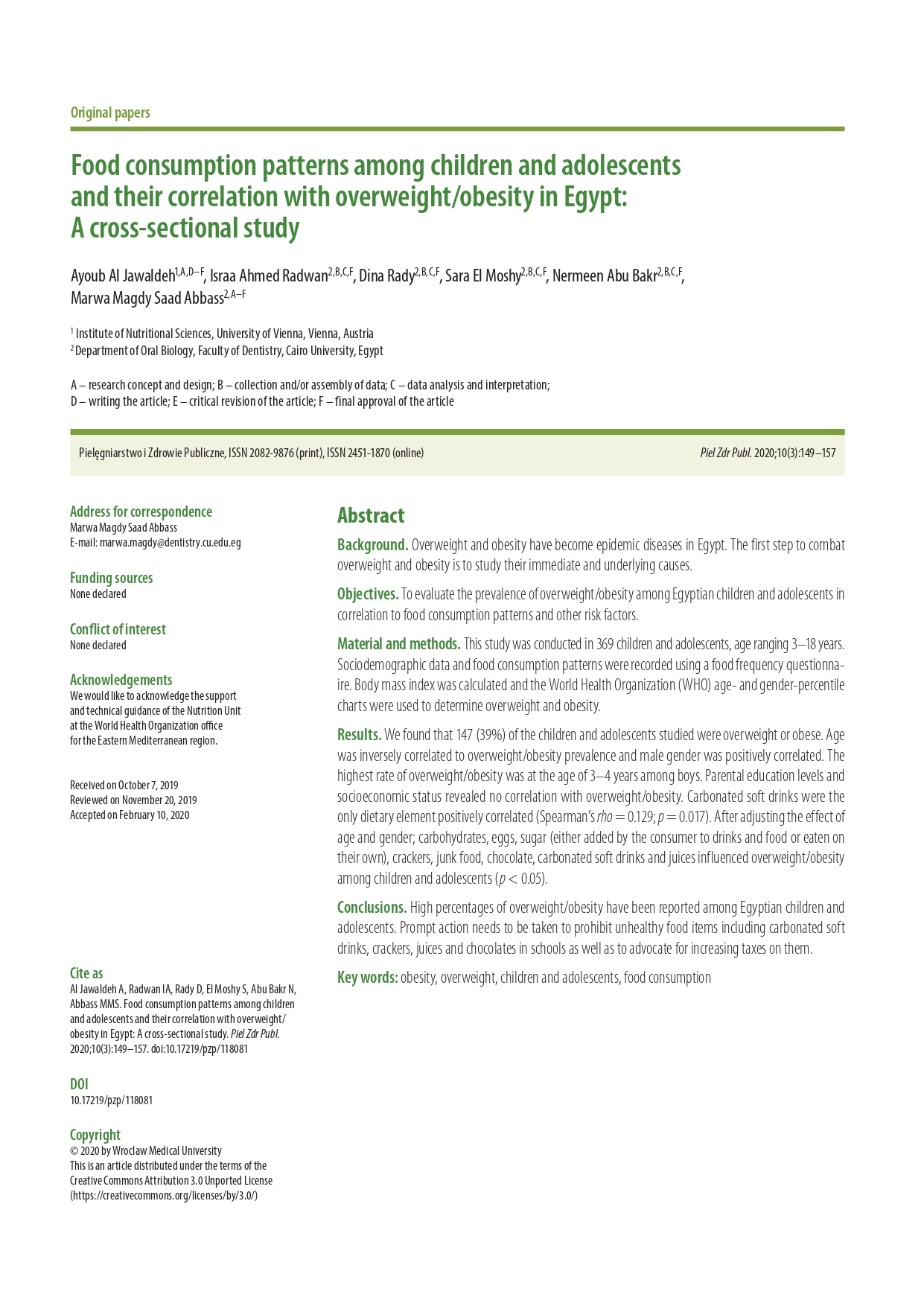
Food consumption patterns among children and adolescents and their correlation with overweight/obesity in Egypt: a cross-sectional study
Publication date: 2020
Overweight and obesity have become epidemic diseases in Egypt. This study aims to evaluate the prevalence of overweight/obesity among Egyptian children and adolescents in correlation to food consumption patterns and other risk factors. The study recommends that prompt action needs to be taken to prohibit unhealthy food items including carbonated soft drinks, crackers, juices and chocolates in schools as well as to advocate for increasing taxes on them.

Rapid assessment of marketing of unhealthy foods to children in mass media, schools and retail stores in Oman
Publication date: 2019
This rapid assessment aimed to examine marketing techniques of foods and non-alcoholic beverages targeting children and assessed implementation of food restrictions in schools as part of the national effort to address obesity in Oman. Trained reviewers assessed Arabic TV satellite stations, local radio and print media, a random sample of schools, and a convenience sample of grocery stores, cafes and convenience stores between November 2015 and October 2016. As a conclusion, urgent efforts are needed to establish a comprehensive regulatory framework based on the Child Law in-line with the WHO recommendations.
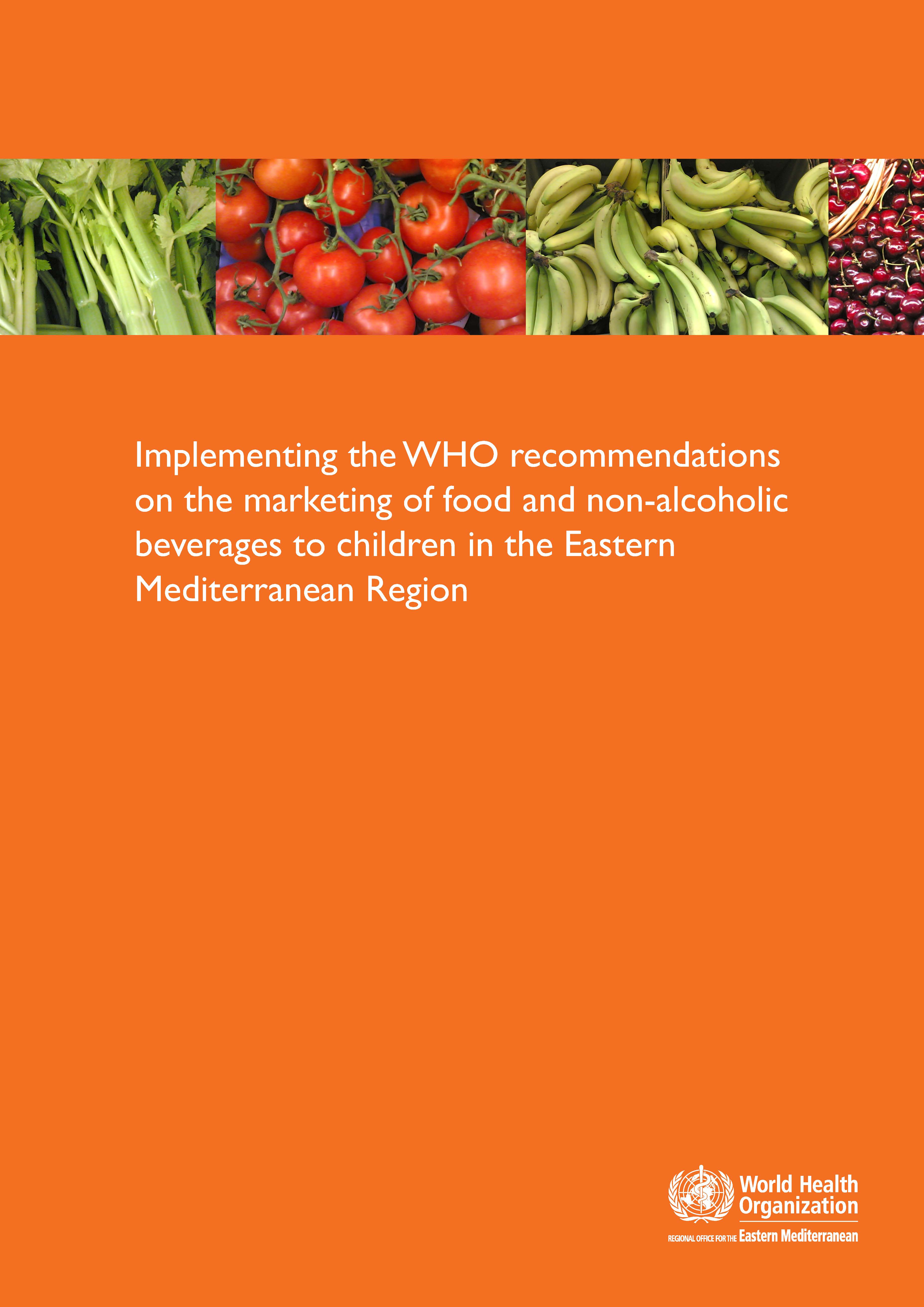
Implementing the WHO recommendations on the marketing of food and non-alcoholic beverages to children in the Eastern Mediterranean Region
Publication date: 2018
This report provides a situational analysis of the progress made in the Eastern Mediterranean Region in implementing the WHO set of recommendations, adopted by the World Health Assembly in 2010, which called on Member States to adopt policies restricting the marketing of unhealthy food to children. It offers guidance to Member States on how to urgently implement these recommendations as part of effective obesity prevention strategies. It also identifies the issues that countries need to consider when adopting policies intended to restrict the marketing of unhealthy food to children.
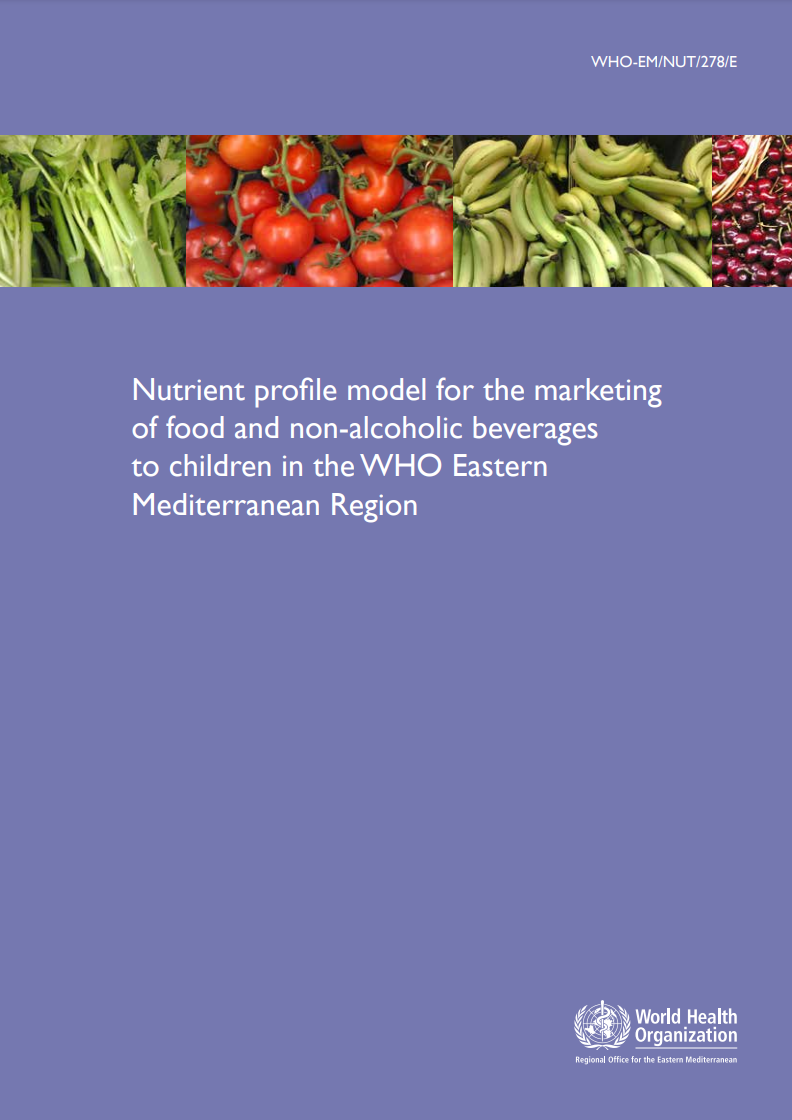
Nutrient profile model for the marketing of food and non-alcoholic beverages to children in the WHO Eastern Mediterranean Region
Publication date: 2017
This regional nutrient profile model was developed based on the model from the WHO Regional Office for Europe, adapting it to the context of the Eastern Mediterranean Region. The model is designed for use by governments to regulate and restrict food marketing to children. It provides a categorization for food items and proposes clear requirements for the nutritional content of food items whose marketing to children is permitted. In addition to the model itself, the document includes a rationale and background for the model and instructions for use.



